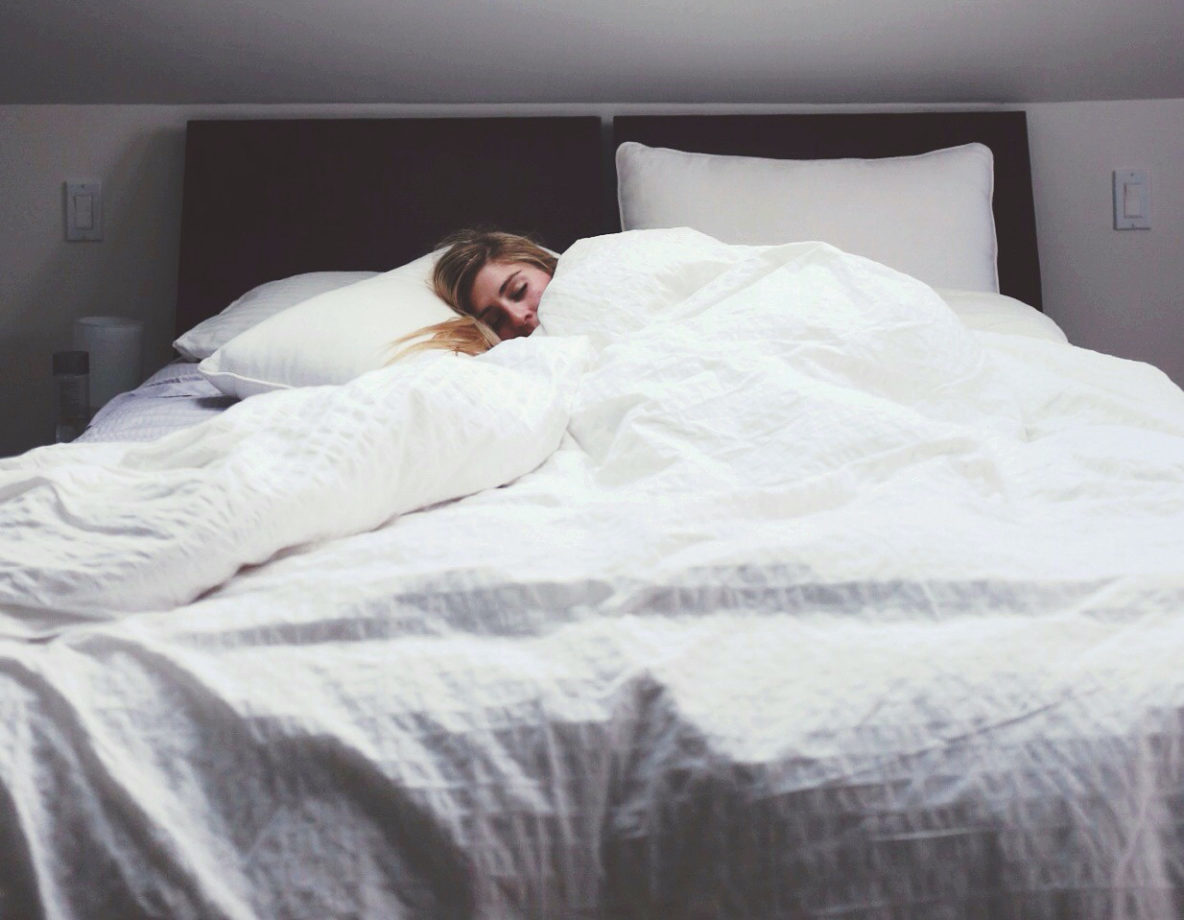
The Science of Sleep: How To Get The Most Out Of It
Science behind your sleep
You may not realize it, but your sleep affects your brain, mood, and immune system. Your heart rate decreases and your blood pressure is lower than usual. During this time, the brain disconnects from external sensory input and produces large, slow waves. Scientists believe these waves are the beginning of the memory consolidation process. During non-REM sleep, brain waves change to a rhythmic pattern, which scientists call an alpha-wave pattern. Alpha waves, which are characteristic of relaxed wakefulness, are present during this phase of sleep. The brain waves of people who are sleeping normally show an alpha-wave pattern. While we’re awake, our brains receive sensory information, coordinate behavior, and process that information into memory. This brain activity is recorded by an electroencephalogram (EEG).

What is sleep, and what are its benefits?
Whether you’re an insomniac or a night owl, you’re probably aware of the importance of sleeping. It’s an essential period of rest and regeneration for your body. The restful state of sleep allows your body to repair itself and regenerate. Getting enough sleep improves our ability to think clearly and solve problems, as well as enhancing our memory. A lack of sleep can impair brain function, causing us to be less alert and forgetful. Poor sleep can even lead to a higher risk of obesity. Getting enough sleep is essential for our physical, mental, and emotional health. It improves our mood and can prevent many diseases, including diabetes and depression. It also improves our concentration and attention, which helps us solve problems, and it helps our brain process information.
How much sleep do we need?
Depending on your age, your body will need a different amount of sleep than a newborn. Babies, for example, require about 14 hours of sleep a day, while older people may need up to seven hours. These guidelines are based on age, so you can follow them depending on your current circumstances. The average adult requires about eight hours of sleep a night. While adults generally require seven to nine hours of sleep a night, babies, young children, and teens require much more time. To find out the amount of sleep you require, take a sleep vacation. This is a great way to determine how much sleep you require. Try taking a week or a weekend off and not setting an alarm.
What affects our sleep?
People who have a high level of stress and anxiety have trouble falling asleep and staying asleep. Also, they experience less deep sleep and more REM sleep. This is due to the fact that stress can stimulate the body’s arousal response. The quality of your sleep may be impacted by your daily routines and chemicals in your body. Alcohol, caffeine, nicotine, and antihistamines can disrupt the quality of your sleep. Our surroundings can have a large impact on how we sleep. The temperature and comfort of our bed can affect our mood. Cold temperatures can disrupt our REM sleep. The environment can impact your sleep. It can influence the feeling of safety in your room and comfort in the bed. When you are traveling, most people find it difficult to fall asleep. The time difference in different countries can disrupt your body clock and impact the timings of your sleep.

How does sleep work?
Sleeping is an important process for the body and the brain. It occurs in stages called rapid eye movement (REM) sleep and non-rapid eye movement (NREM) sleep. Each cycle lasts 90 to 100 minutes, and starts over every 90 minutes. REM sleep involves the slow movement of the eyelids and the cessation of muscle movements. It is a light form of sleep, where you’re aware of the world around you and can wake up to loud noises and sudden movements. Scientists are still not certain why we sleep, but a number of indications support the view that it serves a biological function. In addition to rejuvenating body cells, REM sleep clears the mind of waste, which makes it vulnerable to disease. REM sleep also helps regulate a person’s mood, appetite, and libido.
Tips for getting a good night’s sleep
- Avoiding screens before bed is essential to a good night’s rest. Blue light from cell phones and computers disrupts sleep. Switch to devices with lower screen brightness and light-altering software to decrease the effects of blue lights.
- Avoid late-night television because it suppresses melatonin, which regulates sleep.
- Read an audiobook instead. However, backlit tablets are disruptive than e-readers.
- Make your bedroom a place of relaxation. Your bedroom should be a comfortable space for sleeping, and the design of your bedroom can make or break your sleep.
- A quality mattress and pillow will keep your spine in good alignment and make you feel more relaxed.
Sleeping problems and how to solve them
A lack of sleep can impair your performance at work, affect your relationships, and negatively affect your daily activities. In order to get enough sleep, you must prepare your room for sleeping. If you cannot turn off the lights, it can increase your level of anxiety and make it difficult to fall asleep. Insomnia can have many causes. It can be the result of a pattern of behavior, a physical condition, or a psychological issue. It is important to seek help for addressing these problems with a psychologist. A psychologist can help you change your behavior or learn how to manage your emotions.
Conclusion
The science of sleep is fascinating. The brain is able to recover much faster during sleep than during waking hours. In fact, the REM stage of sleep contains more activity than the other two stages combined. It is also the period when your heartbeat and blood pressure are the lowest. As a result, you have a greater chance of dreaming during REM. Insufficient restorative sleep is bad for the brain because it can cause depression.







